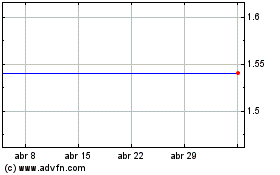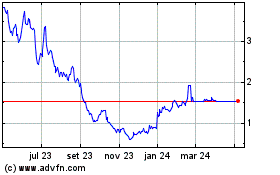NGM Biopharmaceuticals, Inc. (NGM Bio) (Nasdaq: NGM), a
biotechnology company focused on discovering and developing
transformative therapeutics for patients, today announced it has
initiated a Phase 1/1b clinical study of NGM438 for the treatment
of patients with advanced solid tumors. With the initiation of this
trial, all three of NGM Bio’s wholly-owned myeloid checkpoint
inhibition and reprogramming product candidates – NGM438, a LAIR1
antagonist antibody; NGM707, a dual ILT2/ILT4 antagonist antibody;
and NGM831, an ILT3 antagonist antibody – are now in the clinic.
ILT2, ILT4, ILT3 and LAIR1 are myeloid checkpoints that may play a
central role in establishing an immune-suppressive state in the
tumor microenvironment. NGM707, NGM831 and NGM438 are engineered to
release distinct myeloid checkpoints and reprogram myeloid cells to
reverse immune suppression and enhance immune response in tumors.
“We’re thrilled to now have three myeloid checkpoint inhibition
programs in the clinic. NGM707, NGM831 and NGM438 are directed at
distinct myeloid checkpoints, each of which is suspected of playing
a central role in impeding anti-tumor immunity,” said Hsiao D.
Lieu, M.D., Chief Medical Officer at NGM Bio. “We look forward to
the initial interim monotherapy topline data readout from the Phase
1a portion of our ongoing NGM707 Phase 1/2 trial in the second half
of the year, the first of multiple anticipated data readouts from
this portfolio in 2022 and 2023.”
NGM438 is an antagonist antibody product candidate engineered to
inhibit LAIR1 being developed by NGM Bio for the treatment of
advanced solid tumors. LAIR1 is a collagen-binding inhibitory
receptor expressed on immune cells that is implicated in immune
suppression. LAIR1 and collagens are upregulated in multiple cancer
types and are associated with poor responses to checkpoint
inhibitors. For these tumors, the formation of LAIR1-collagen
complexes may act as a stromal checkpoint to suppress productive
immune responses in the tumor microenvironment.
NGM Bio presented late-breaking preclinical data at the 2022
AACR Annual Meeting showing that NGM438 may inhibit LAIR1-mediated
collagen-driven immune suppression alone and in combination with T
cell checkpoint inhibition. Visit
https://www.ngmbio.com/discovery-engine/publications/ to view this
poster and all of NGM Bio’s immuno-oncology research presented at
the 2022 AACR Annual Meeting.
KEYTRUDA® is a registered trademark of Merck Sharp &
Dohme Corp., a subsidiary of Merck & Co., Inc., Rahway, NJ,
USA.
About the NGM438 Phase 1/1b Trial Design
The Phase 1/1b open-label, multicenter, dose-escalation and
dose-expansion trial is designed to determine the safety,
pharmacokinetics and pharmacodynamics of NGM438 when given alone
and in combination with KEYTRUDA to patients across a spectrum of
advanced solid tumors, and to evaluate preliminary antitumor
activity. The trial will enroll up to approximately 80 adult
patients with multiple tumor types, including pancreatic cancer,
breast cancer, mesothelioma, gastric cancer, non-small cell lung
cancer (NSCLC), cervical and endocervical cancer, biliary duct
cancer (cholangiocarcinoma), squamous cell carcinoma of the head
and neck (SCCHN), bladder urothelial cancer, colorectal cancer
(CRC), esophageal cancer, ovarian cancer, renal cell carcinoma
(RCC), prostate cancer and melanoma (skin cutaneous).
The Phase 1 portion of the trial will include a monotherapy dose
escalation (Part 1a) and a combination dose finding with KEYTRUDA
(Part 1b). Part 1c of the trial will be a serial tumor biopsy
biomarker cohort, in which patients will be enrolled to receive
NGM438 monotherapy for one cycle, followed by combination treatment
with KEYTRUDA after tumor biopsies have been performed.
About NGM Bio’s Myeloid Checkpoint Inhibition and
Reprogramming PortfolioMyeloid cells, which are abundantly
present in the tumor microenvironment of many tumor types, play a
critical role in the immune system, where they are largely
responsible for innate defense against an array of pathogens.
However, myeloid cells act independently and collaboratively with
other components of the tumor stroma (the non-malignant components
of a tumor) to serve as myeloid checkpoints. Like T cell
checkpoints, myeloid checkpoints keep the brakes ‘on’, enabling
tumors to evade the immune system and driving resistance to cancer
therapies. Through the inhibition of key, distinct receptors – ILT3
(NGM831), LAIR1 (NGM438) and ILT2/ILT4 (NGM707) – NGM Bio’s
approach has the potential to switch myeloid cells from their
current state as ‘checkpoints’ that suppress anti-tumor immunity to
a state where they may enhance anti-tumor immunity.
Abbreviations (in Alphabetical Order)
CRC=colorectal cancer; ILT2=Immunoglobin-Like Transcript 2;
ILT3=Immunoglobin-Like Transcript 3; ILT4=Immunoglobin-Like
Transcript 4; LILR= Leukocyte Immunoglobin-Like Receptor [ILT2 =
LILRB1, ILT3=LILRB4, ILT4=LILRB2]; LAIR1=Leukocyte-Associated
Immunoglobulin-Like Receptor 1; NSCLC=non-small cell lung cancer;
RCC= renal cell carcinoma; and SCCHN=squamous cell carcinoma of the
head and neck.
About NGM BioNGM Bio is focused on discovering
and developing novel, life-changing medicines for people whose
health and lives have been disrupted by disease. The company’s
biology-centric drug discovery approach aims
to seamlessly integrate interrogation of complex
disease-associated biology and protein engineering expertise to
unlock proprietary insights to generate promising product
candidates and enable their rapid advancement into proof-of-concept
studies. As explorers on the frontier of life-changing
science, NGM Bio aspires to operate one of the most productive
research and development engines in the biopharmaceutical industry.
All therapeutic candidates in the NGM Bio pipeline have been
generated by its in-house discovery engine, with a disease-agnostic
mindset, always led by biology and motivated by unmet patient need.
Today, the company has seven programs in active
development, including four in Phase 2 or 2b
studies, across three therapeutic areas:
cancer, retinal diseases and liver and
metabolic diseases. Visit us at www.ngmbio.com for more
information.
Forward-Looking Statements Statements contained
in this press release regarding matters that are not historical
facts are “forward-looking statements” within the meaning of the
Private Securities Litigation Reform Act of 1995. Words such as
“will,” “may,” “expected,” “engineered to,” “designed to,”
“potentially,” “suspected,” “look forward,” “anticipated,”
“promising,” “plan,” “aspires,” “aims” and similar expressions (as
well as other words or expressions referencing future events,
conditions or circumstances) are intended to identify
forward-looking statements. These statements include those related
to: the therapeutic potential of NGM Bio’s product candidates;
enrollment expectations in NGM Bio’s NGM438 trial; the design and
potential of NGM Bio’s biomarker strategy; the timing of multiple
anticipated pipeline topline data readouts; the role of LILR
receptors in driving immune suppression in the tumor
microenvironment; the potential to switch myeloid cells from
suppressing to enhancing anti-tumor immunity; the role of
collagen:LAIR1 complexes as potentially acting as a stromal
checkpoint to suppress productive immune responses in the tumor
microenvironment; NGM Bio’s continued pipeline development and
research and development output; and other statements that are not
historical fact. Because such statements deal with future events
and are based on NGM Bio’s current expectations, they are subject
to various risks and uncertainties, and actual results, performance
or achievements of NGM Bio could differ materially from those
described in or implied by the statements in this press release.
These forward-looking statements are subject to risks and
uncertainties, including, without limitation, risks and
uncertainties associated with the costly and time-consuming
pharmaceutical product development process and the uncertainty of
clinical success, including risks related to failure or delays in
successfully initiating, enrolling, reporting data from or
completing clinical studies, as well as the risks that results
obtained in clinical trials to date may not be indicative of
results obtained in ongoing or future trials and that NGM Bio’s
product candidates may otherwise not be tolerable and effective
treatments in their planned indications; the ongoing COVID-19
pandemic, which has adversely affected, and could materially and
adversely affect in the future, NGM Bio’s business and operations,
including NGM Bio’s ability to timely supply, initiate, enroll and
complete its ongoing and future clinical trials; the time-consuming
and uncertain regulatory approval process; NGM Bio’s reliance on
third-party manufacturers for its product candidates and the risks
inherent in manufacturing and testing pharmaceutical products; the
sufficiency of NGM Bio’s cash resources, including to fund its
wholly-owned programs, and NGM Bio’s need for additional capital;
and other risks and uncertainties affecting NGM Bio and its
development programs, including those discussed in the section
titled “Risk Factors” in NGM Bio’s quarterly report on Form 10-Q
for the quarter ended March 31, 2022 filed with the United States
Securities and Exchange Commission (SEC) on May 5, 2022 and future
filings and reports that NGM Bio makes from time to time with the
SEC. Except as required by law, NGM Bio assumes no obligation to
update these forward-looking statements, or to update the reasons
if actual results differ materially from those anticipated in the
forward-looking statements.
| Investor
Contact:Brian Schoelkopfir@ngmbio.com |
Media
Contact:media@ngmbio.com |
NGM Biopharmaceuticals (NASDAQ:NGM)
Gráfico Histórico do Ativo
De Mar 2024 até Abr 2024

NGM Biopharmaceuticals (NASDAQ:NGM)
Gráfico Histórico do Ativo
De Abr 2023 até Abr 2024
